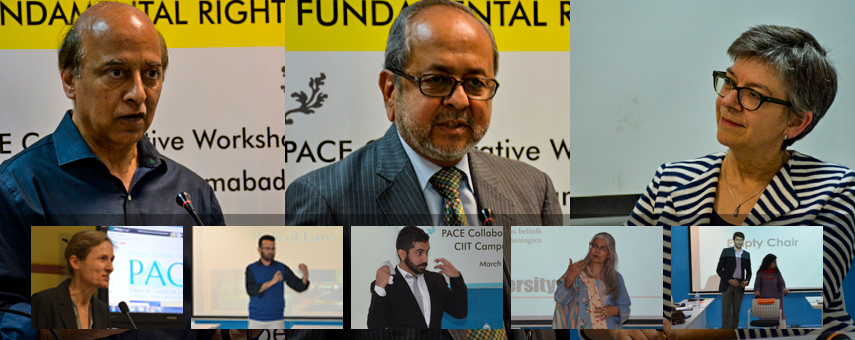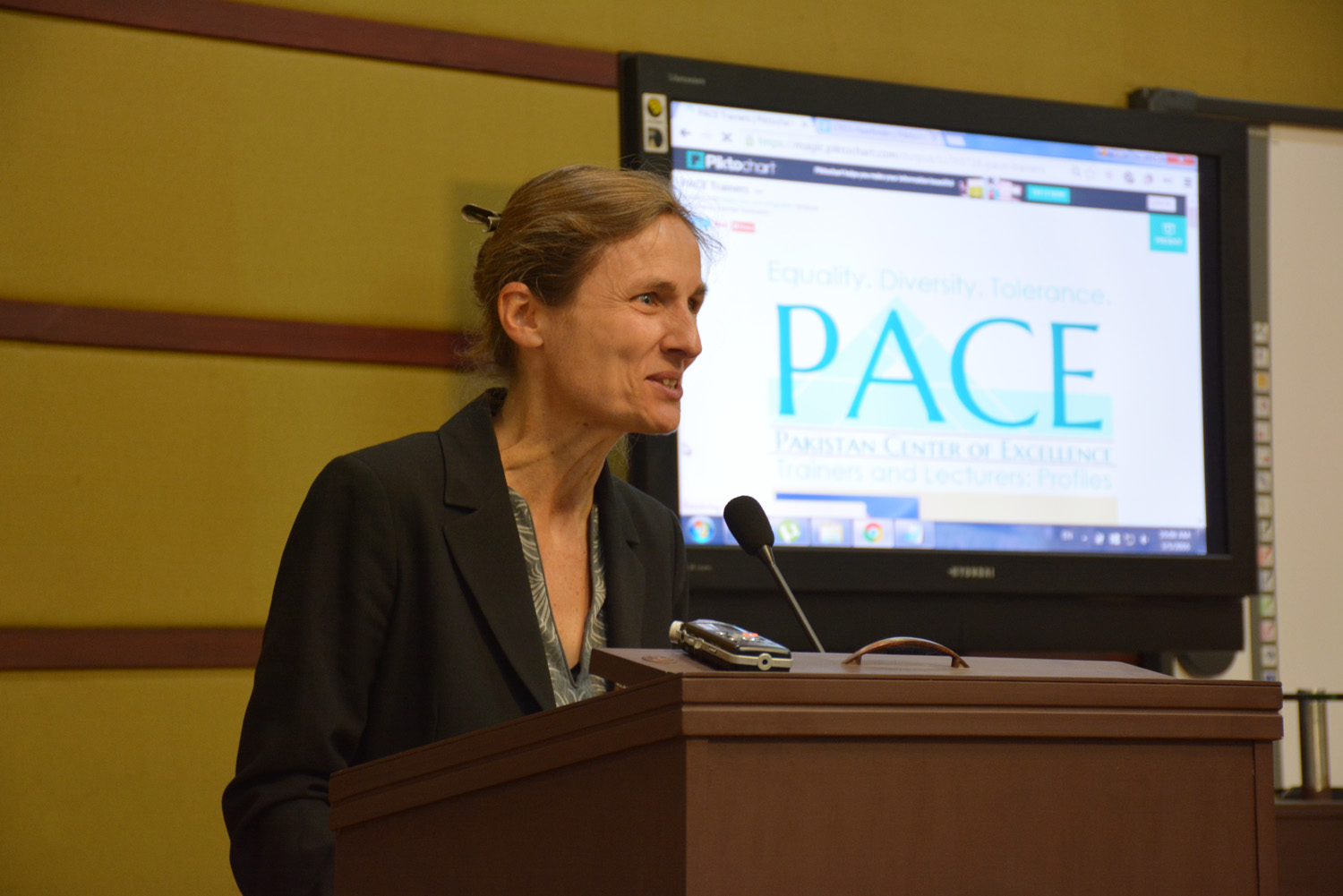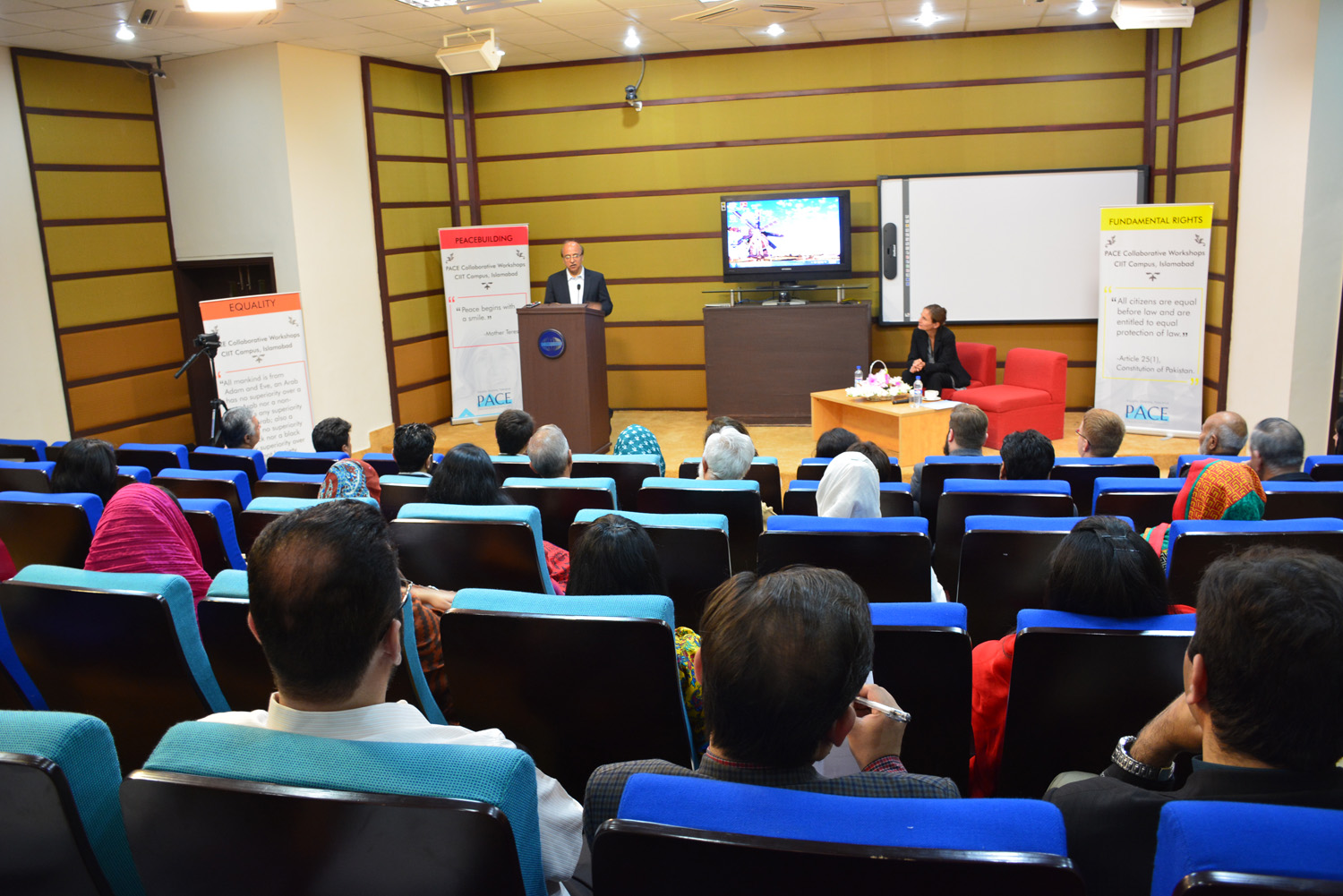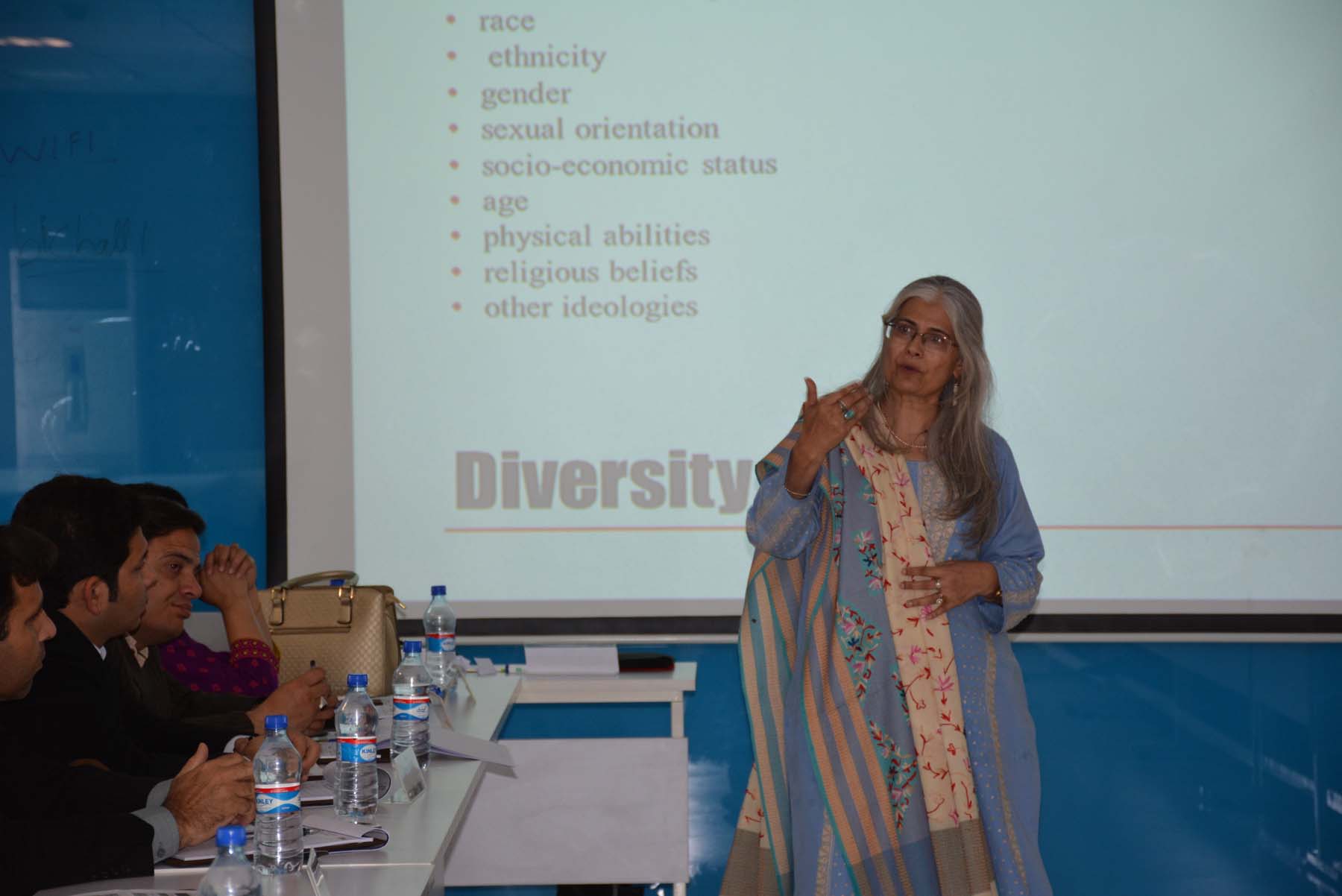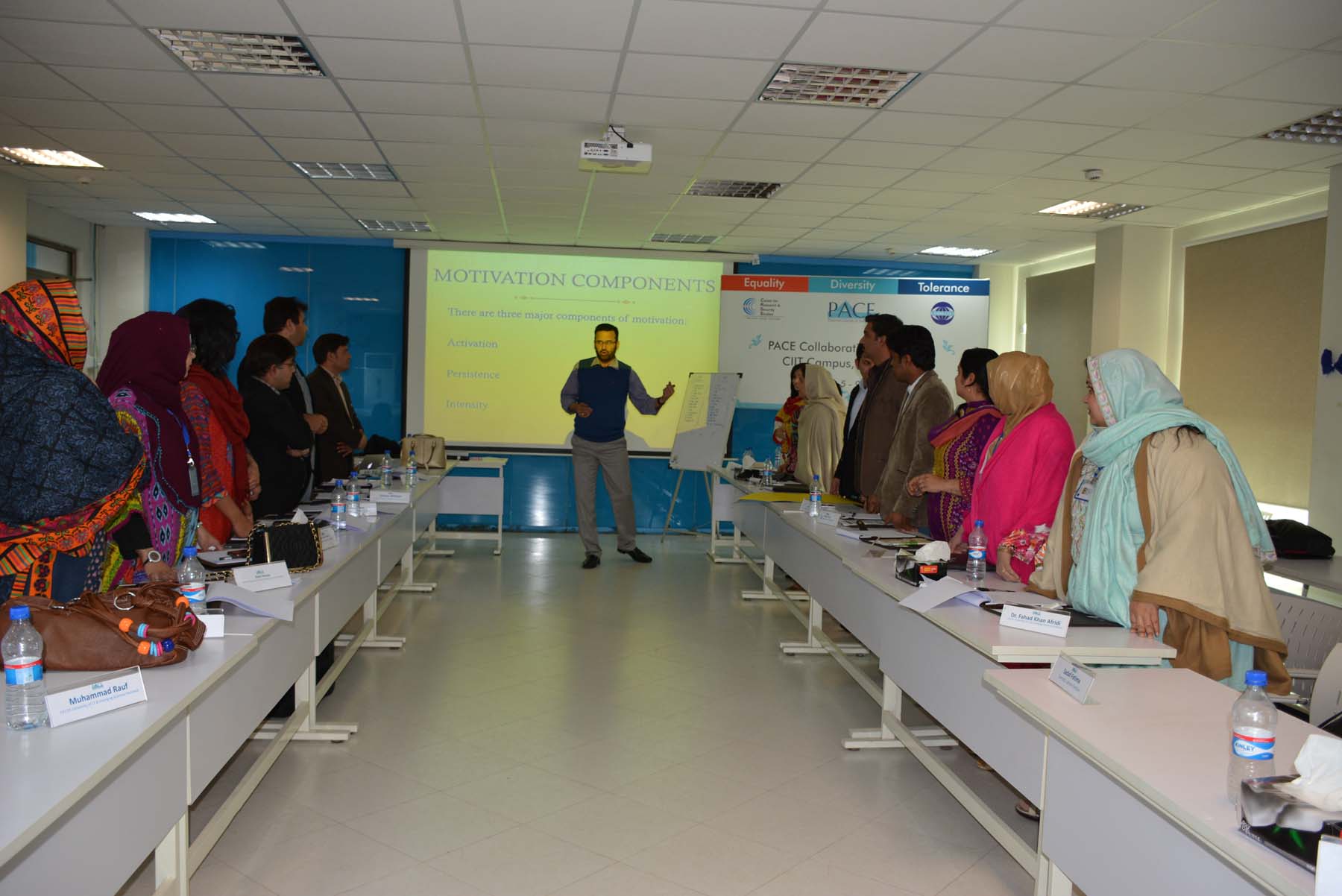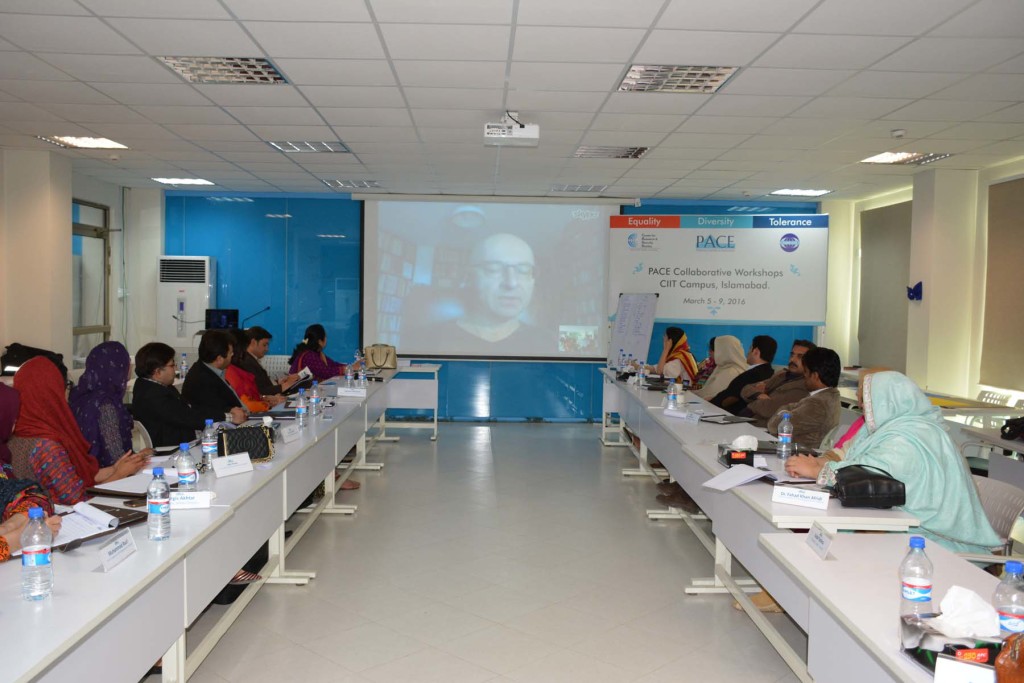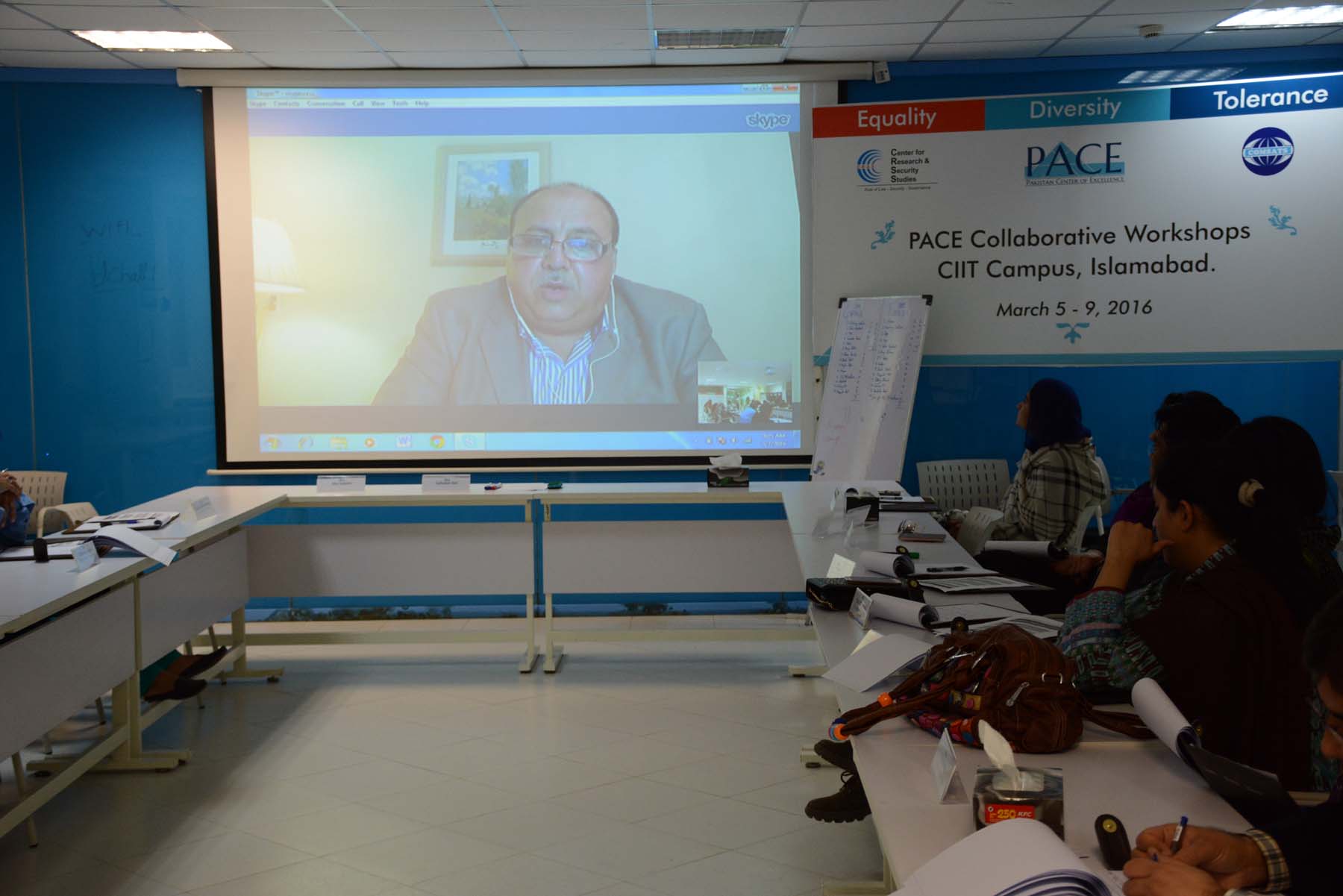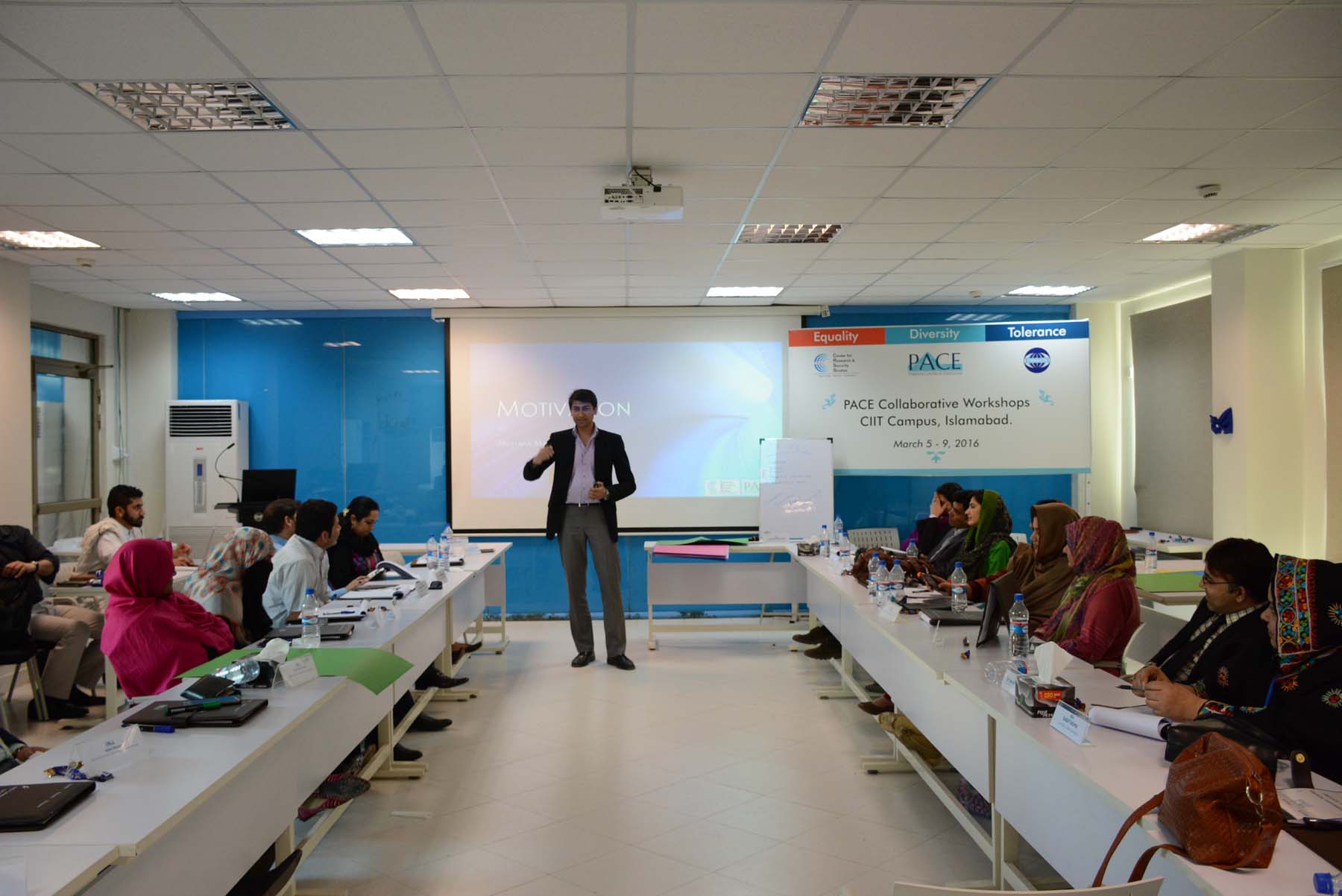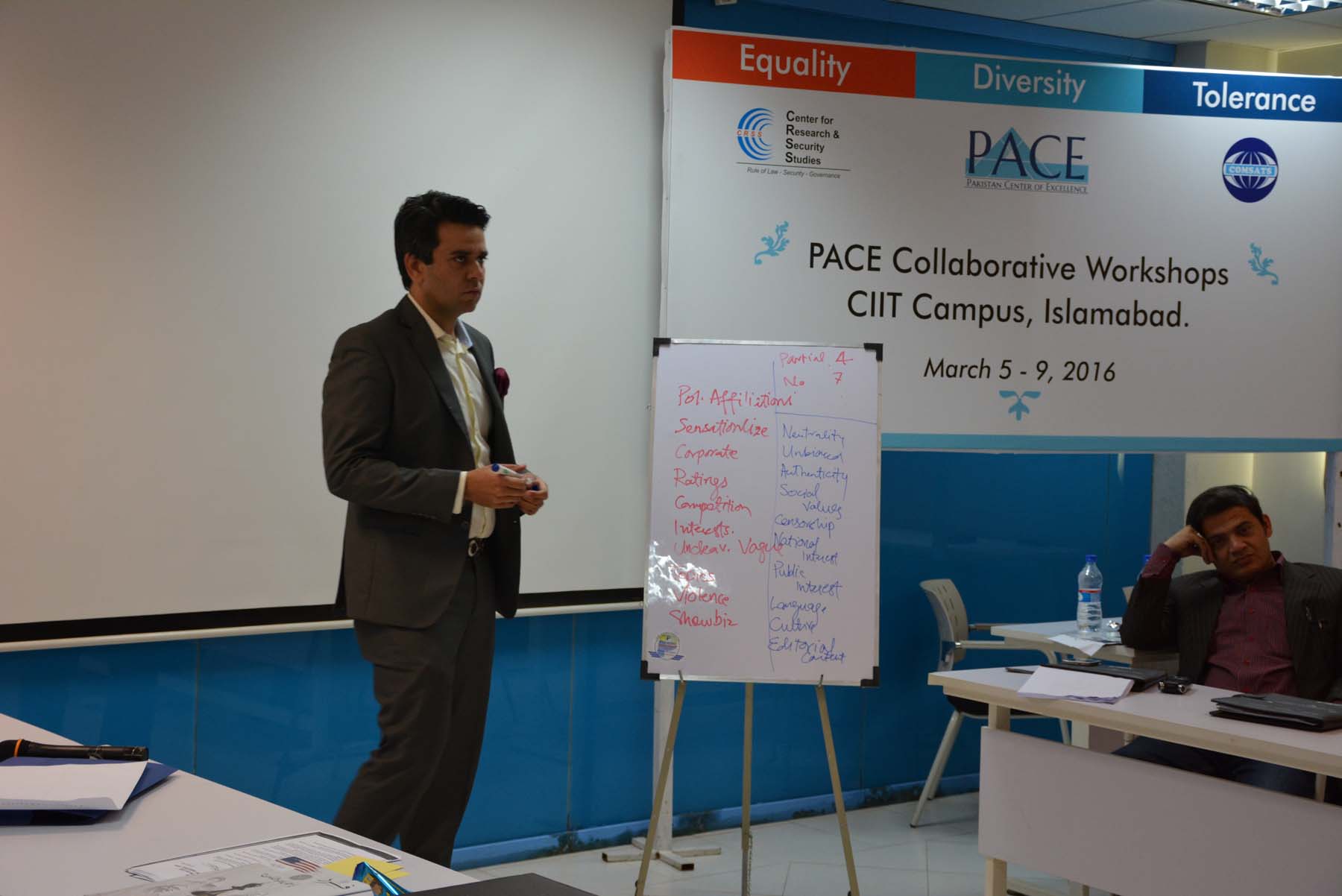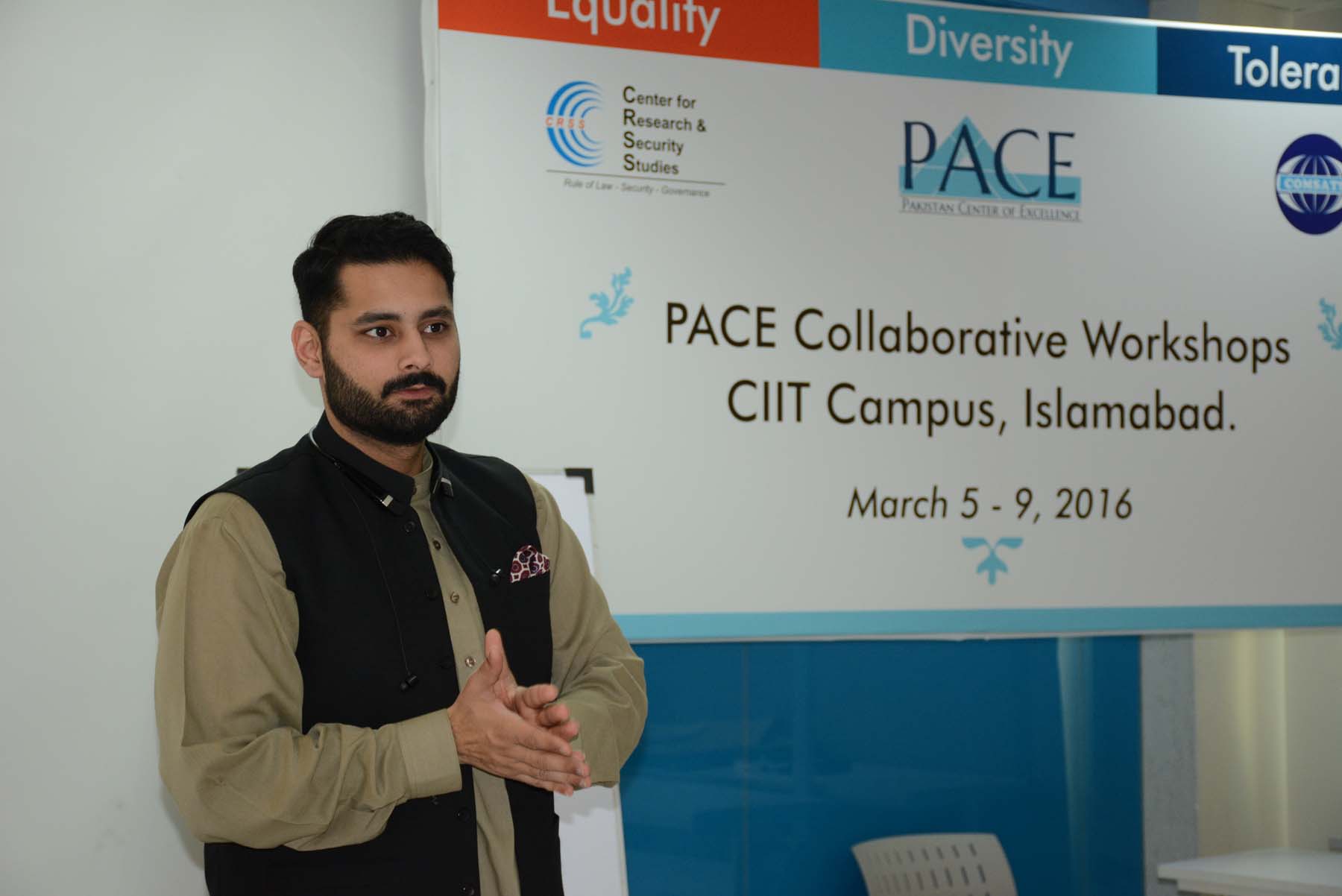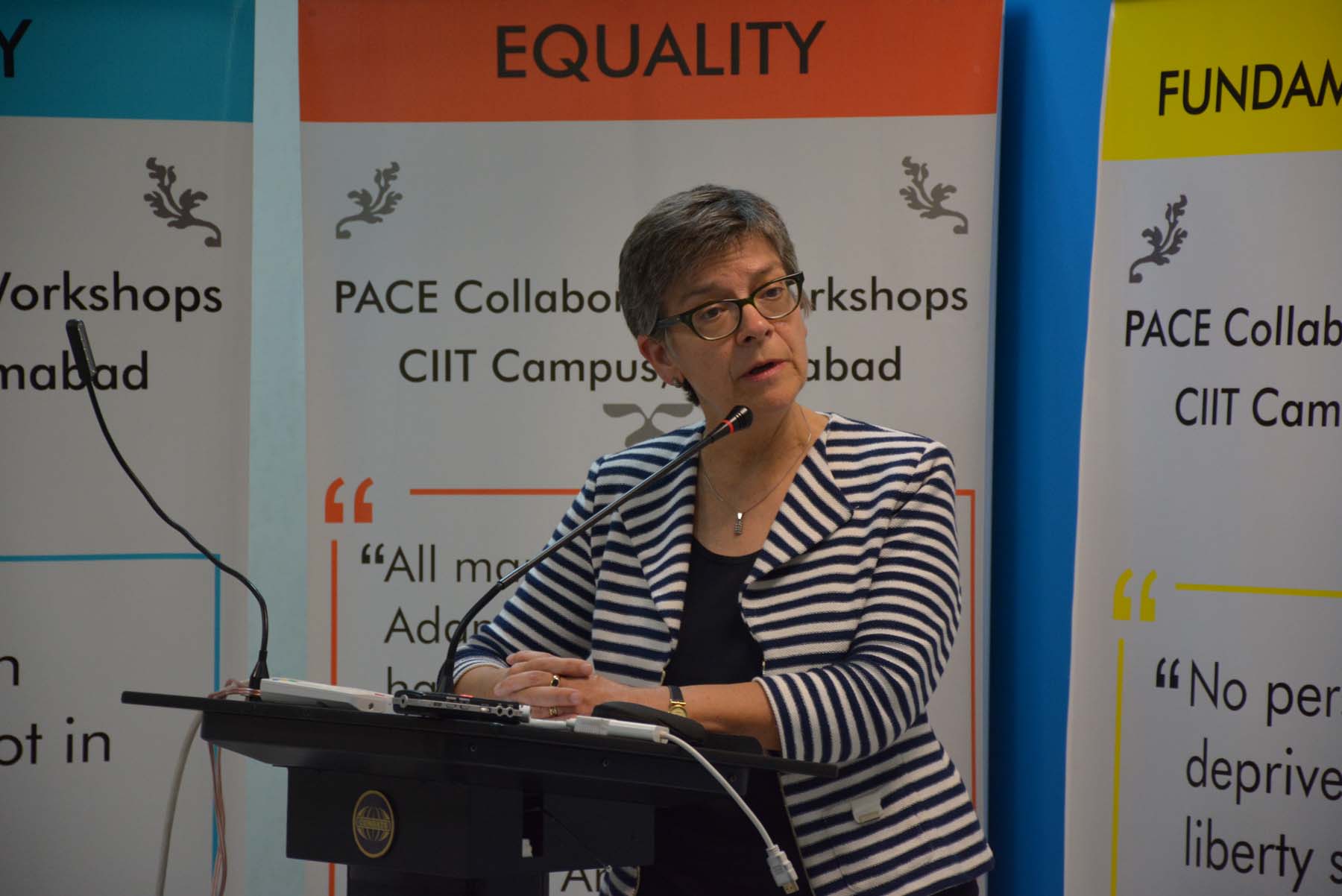The Center for Research and Security Studies (CRSS) conducted a five day collaborative workshop for young lecturers and professors of universities from March 5-9, 2016 at COMSATS Institute of Information and Technology. The workshop was conducted under the umbrella of the Pakistan Center for Excellence (PACE), a counter-radicalization pluralistic values focused project, in collaboration with the Dutch Embassy. Participants included young university lecturers and professors from COMSATS Institute for Information Technology (CIIT), CECOS University, Quaid-e-Azam University, and the Journalism and Mass Communication Department, Peshawar University.
Her Excellency Ms. Jeannette Seppen, the Netherlands Ambassador, was the chief guest at the inaugural session. While addressing the cadre of lecturers, she said, “Participation of opinion multipliers in the potential exercise of tolerance and dialogue was the need of the hour. For Netherlands, all issues of radicalization, extremism and fundamentalism have been priority agendas across all those countries where we are involved through our international cooperation.”
Mr. Imtiaz Gul, Executive Director, CRSS, after showing a brief video to the audience encapsulated some of the ideals that prompted the creation of PACE. He said that these ideals also resonated with the core values that are acknowledged, practiced and respected as fundamental to social harmony, political peace and national cohesion.
“PACE is anchored in the central theme of equal citizenry and the rule of law because these are the critical values that can and may minimize conflict and help promote peace and generate respect for diversity of thought, faith and ethnicity”
Mr. Gul said that by sticking to the constitution, promoting respect for the universal declaration of human rights and by creating awareness on the UN indicators for rule of law and equal citizenry, we could help rationalize the conversation on governance, national unity, peace and harmony. “For this, critical thinking is the first tool and this is what we are starting together today. The hops is to seeds for a critical mass that serves as the harbinger of critical thinking and thus contribute to the goal of peace and social harmony.”
The primary objective of the workshop was to trigger critical thinking through a discourse anchored in fundamental global values such as socio-political diversity, acceptance of diversity, rule of law and equal citizenry. The idea is to create a critical mass of young leaders equipped with analytical skills to critically analyze issues, look at each other as equal citizens, and correct misconceptions about marginalized communities.
Workshop Core Areas
The young professionals were trained in following areas:
- Leadership and motivation
- Equal citizenry and respect for rule of law
- Fundamentals of democracy, governance and accountability
- Respect for diversity, opinions and rights
Workshop Modules
This cadre of young lecturers was trained by experts in the above mentioned fields including: A. H. Nayyar, Safiullah Gul, Afia Salam, Gulmina Bilal, Jibran Nasir, Rehman Azhar, Piotr Blacerowitcz, and Jehangir Khattak.
Mr. A. H. Nayyar spoke about how education can be helpful in inculcating critical life skills among youth, such as equal citizenry, respect for rule of law, respect for diversity, and rights and opinions. His lecture started with him highlighting issues that exist in our society due to which we are not able to provide equal citizenry to everyone. “Might is considered to be right and we don’t show any respect for rule of law which presents a retrogressive image of our society,” he added. Critiquing Pakistan’s education system, Mr. Nayyar mentioned that there is a lack of teaching material in areas such as critical thinking, reasoning and promoting respect for diversity. He reinforced the importance of teaching this thinking by deconstructing the social contract theory which emerged in the 18th century, known today as a country’s constitution. He also explained how important civic education was to make people realize of the sacrifices they have to make to accommodate each other for creating a tolerant and peaceful society.
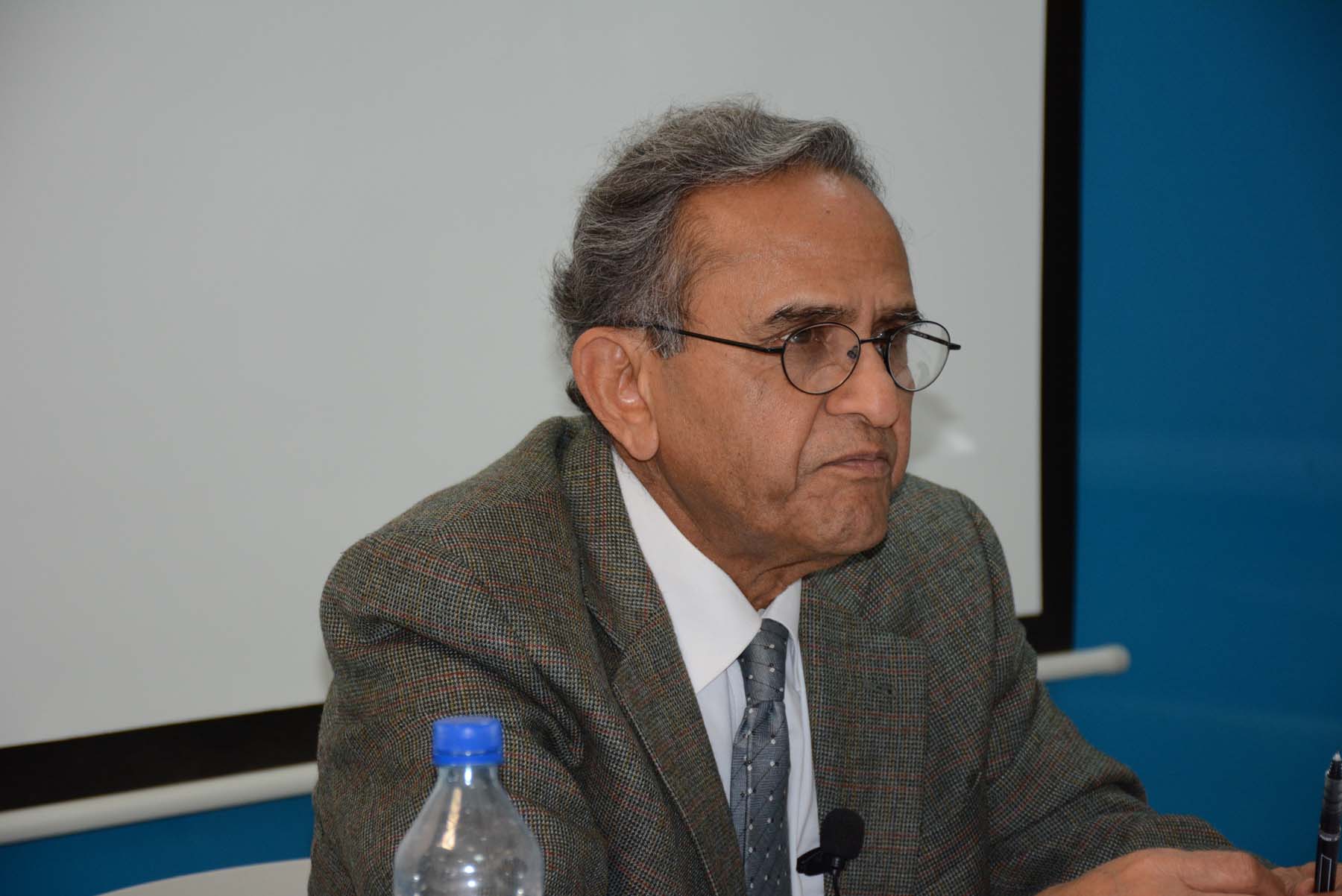
[read more about A. H. Nayyar]
The second day of the training kicked off with veteran journalist and environmentalist Ms. Afia Salam speaking on the theme of respect for diversity. This was followed by an introductory activity. Discussion revolved around how people affiliate themselves with their ethnic backgrounds. She also discussed that considering 3% of our population constitutes of various religious minorities, we should acknowledge and respect people that have different beliefs and values. She added that institutional structures can play a vital role in promoting the virtues of respect for diversity and help bridge the gap that exists due to biased religious mindsets alongside working or alternative narratives to help smooth the process.
Mr. Safiullah Gul, bureau chief for a private television channel in Peshawar, conducted a session on motivation and rule of law where he emphasized the extent to which effort is directed toward a goal, and its components: activation, persistence and intensity. He encouraged debate among the audience over the subject of constitution and rule of law and also informed on how FCR was promulgated by the British to govern the tribal areas at the time.
[read more about Safiullah Gul ]
Through a live video call on Skype, philosopher Mr. Piotr Blacerowitcz, professor at the University of Warsaw spoke about religious and social identity in South Asia. He said people make religion violent and it holds the same for all religions. They all have had a history of violence and cruelty but the same religions have had a long history of positive development and have evolved over time. Generally, all religions come down to a list of do’s and don’ts which were revealed thousands of years ago and some of those do’s and don’ts might not be practical in today’s world. Therefore, interpretation should be carried out contemporary.
[read more about Piotr Blacerowitcz]
Mr. Jehangir Khattak, Senior Editor and Communications Director at Voices of New York, expanded on how diversity in media can also help project traditions and culture. “If you want to make a narrative, you have to be part of that narrative. Real impact would depend on the ability to write, participating in discussions, attending town hall and public meetings, being part of civic engagement etc.” Khattak’s lecture was one of the highlights of the training exercise.
[read more about Jehangir Khattak]
Mr. Mustafa Malik also spoke of motivation and compared the close relation between rights and responsibilities to motivation and demotivation, as they cannot be separated. He insisted that failure only means you are closer to success as long as you learn from it and stay motivated. “The only thing stopping you from achieving something is yourself,” he concluded.
[read more about Mustafa Malik]
Veteran anchor and host Mr. Rehman Azhar stressed on the critical role and responsibility media has and how it should be ethically reporting unbiased information. He stressed on the importance of being neutral and presenting authentic news. He said that words are misinterpreted very often when it comes to sensitive issues, therefore, extreme care should be taken while debating on such issues.
[read more about Rehman Azhar]
Mr. Jibran Nasir shared his views on tolerance. He said that the first learning institution for a human being is his own home. Not everyone gets the same opportunity of learning and everyone is brought up differently. While growing up, if one’s family has a conflict with a particular ethnicity, it would automatically transfer to you. One tends to develop a certain kind of attitude towards a certain ethnic, cultural and religious group, if brought up in an environment that is not tolerant. Argument and reasoning needs to be done in a positive way to correct conflicting views. Tolerance is something that expands with exposure to different levels and learning more about diverse groups. One should be open and accommodating to all the differences that exist in a diverse society.
[read more about Jibran Nasir]
Her Excellency Margaret Adamson, the Australian High Commissioner to Pakistan was the chief guest during the closing ceremony of PACE’s first round of collaborative workshops, on Wednesday, March 9, 2016. “Every teacher has a responsibility towards their students for passing on this sense of equal citizenry. Australia is one of the most diverse countries on earth and has many minorities from its indigenous people, to smaller communities, that have arrived over the period of extensive migration that Australia has experienced and has indeed welcomed.” While engaging with fundamental issues, the need to reflect that every human being is equal regardless of the gender, background, culture, and religion is critical, she said. Fundamental human rights are global rights. PACE – a key initiative of the CRSS – is cross-cutting, cross-disciplinary and highly relevant today.
Dr. S. M. Junaid Zaidi, H.I., S.I., Rector CIIT assured full support to the initiative and said that they were happy to collaborate for the program and fully supported the notion of creating awareness for values and respect for peace. Dr. Arshad Malik from COMSATS also stressed that the teachers should impart the fundamental global values among their students.

